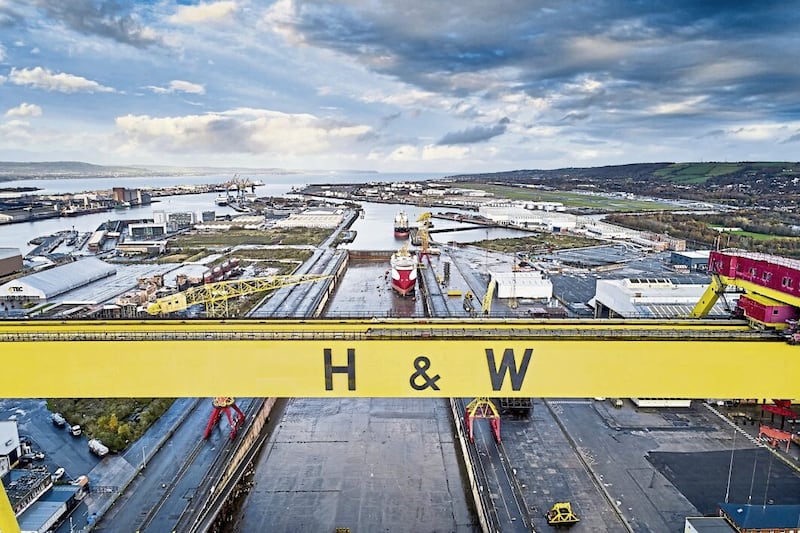The King’s annual income from his private Duchy of Lancaster estate was more than £27 million, accounts have shown.
Charles received the money from the Duchy, an ancient portfolio of land, property and assets which is held in trust for the sovereign, in his first full financial year as monarch.
This private Duchy income is separate from the taxpayer-funded Sovereign Grant.

It comes as his son the Prince of Wales’s income from his hereditary Duchy of Cornwall estate was revealed to be £23 million, while the Sovereign Grant, which pays for the royal family’s official duties, is set to jump by £45 million to £130 million in 2025/26.
The Duchy of Lancaster has been the personal estate of the reigning monarch since 1399.
It spans more than 18,000 hectares of land in England and Wales and comprises commercial, agricultural and residential properties mostly in Lancashire, Yorkshire, Cheshire, Staffordshire and Lincolnshire.
It gives the monarch a source of income for funding his private activities and some official expenditure, but the breakdown of how the King spends the private money – which is independent of the Government – is not released.

William has faced criticism for not revealing how much tax he pays on his Duchy of Cornwall income, something Charles used to disclose when he was the previous Duke of Cornwall.
The net surplus of the Lancaster estate, to which Charles is entitled via the Privy Purse, increased by £1.2 million – or 5% – to £27.4 million in 2023/24, accounts published on the Duchy of Lancaster website showed on Wednesday.
Charles acceded to the throne partway through the previous financial year of 2022/23.
The Duchy’s net asset value has also increased by £6.4 million, up 1% to to £647.6 million.
Royal commentator Peter Hunt said of the King’s Duchy income: “There is no public scrutiny of how it is spent because it is regarded as private income.”
He also questioned William’s decision to withhold more information about his Duchy of Cornwall finances than his father did.
“Royal non-disclosure triumphs over transparency. William’s obsession with privacy trumps any concerns as to how this may look,” Mr Hunt said.
But he warned: “The absence of answers to basic questions could prove unsustainable in the years ahead.”
Nathan Thompson, the outgoing Duchy of Lancaster’s chief executive, said a strong performance in the agriculture sector had boosted the accounts.

Revenue from the Duchy’s let commercial and industrial properties had also increased by 8.7%.
Mr Thompson said: “The diverse nature of the portfolio continues to provide the business with resilience and strength.”
Alastair Martin, the Duchy of Cornwall’s current secretary and keeper of the records who worked with Charles for many years when he was the Duke of Cornwall, is to return to the King’s service by taking over as the new chief executive of the Duchy of Lancaster in September.
The bulk of the King’s official duties, such as travel, property maintenance, hospitality and official staff costs, are met by the Sovereign Grant, which is funded by the taxpayer in exchange for the King’s surrender of the revenue from the Crown Estate.
Historically, the late Queen, who also held the title of the Duke of Lancaster rather than Duchess of Lancaster, used her Duchy income for her private activities, and to pay for official expenditure not met by taxpayers through the Sovereign Grant, including the expenses of other members of the royal family such as the Wessexes, now known as the Edinburghs, and the Princess Royal.

The late Queen was also said to have used an unknown amount to fund the Duke of York’s royal duties, before he stepped down after paying millions to settle a civil sexual assault case, and to pay for part of his private life.
The Duchy’s main urban holding is the lucrative Savoy Estate in central London.
Bounded by the Strand and the Embankment, but not including the Savoy Hotel, the buildings are let mainly as shops and offices.
Lancaster Castle in Lancashire is also owned by the Duchy, along with a number of other castles including Bolingbroke Castle in Lincolnshire, Halton Castle in Cheshire, Pontefract Castle in Yorkshire, and Ogmore Castle in South Wales.
The Duchy of Lancaster accounts are separate from other financial reports from the Sovereign Grant and the Duchy of Cornwall, which were also released on Wednesday.









